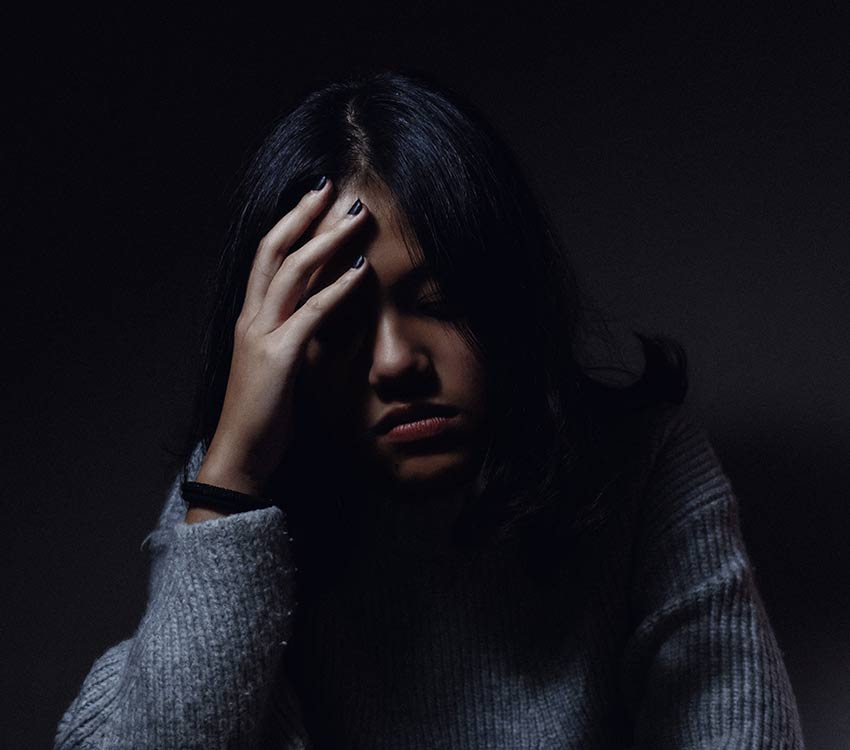Primary Author: Marisa Valentino | Secondary Author: Julie Sullivan NP
Content warning: mentions of suicidal thoughts and self-harm
What Is Depression?
Depression is also known as major depressive disorder or clinical depression. It is a mood disorder that causes a persistent feeling of sadness and loss of interest in activities you once enjoyed. It can affect your thoughts, feelings, and behavior. Those with depression may notice difficulty with day-to-day activities. In more extreme cases, they may even feel like life is not worth living.
Depression is relatively common. An estimated 18.5 percent of American adults have experienced depression symptoms over a 2-week period in 2019, according to the Centers for Disease Control and Prevention. Yet depression is one of the most underdiagnosed and untreated mental health disorders in the US. Minorities have the highest percentage of untreated depression. This can be attributed to providers’ inability to recognize subtleties in the presentation of depression across racial and ethnic boundaries, according to a study in the National Library of Medicine.
Feeling sad or upset at times is a normal part of life. However, if you’re feeling down on a regular basis, you may be experiencing depression. Depression is a serious mental health condition that can worsen without proper treatment.
Types of Depression
There are various types of depression, some of which include;
Bipolar Disorder
Bipolar disorder is a mental health condition causing extreme intense mood swings ranging from emotional highs and lows. The high periods are characterized by mania or hypomania, and the low periods are marked by depressive episodes.
Seasonal Affective Disorder (SAD)
Seasonal affective disorder is a period of depression linked to seasonal changes. People with SAD commonly start experiencing symptoms in the fall and winter months. These symptoms typically resolve during the spring and summer months.
Persistent Depressive Disorder (Dysthymia)
Persistent depressive disorder is a long-term ongoing form of depression. With this mental health condition, depression symptoms can last for years and interfere significantly with daily life, work, and relationships.
Symptoms of Depression
Not everyone experiencing depression will have the same symptoms. These symptoms can vary in frequency, severity, and time. If you are experiencing some of the following symptoms daily for two weeks or longer, you may be dealing with depression:
- Sleeping too much or too little.
- Changes in weight or appetite.
- Feeling fatigued and having decreased energy.
- Loss of interest in hobbies and activities you used to enjoy.
- Feeling anxious, sad, hopeless, pessimistic, worthless, bothered, annoyed, or angry.
- Thoughts of suicide, death, self-harm, or suicide attempts.
Causes of Depression
The exact cause of depression is unknown. However, a few factors can contribute to this mental disorder, including;
Genetics
Depression is more common in people with a family history of depression or another mood disorder.
Brain Chemistry
Environmental Factors
Those consistently exposed to environmental factors like abuse, violence, and neglect may be at a higher risk of depression.
ReKlame Health Can Help
If you’re experiencing symptoms of depression, you are not alone. ReKlame Health can help. We offer affordable medication management and mental healthcare. Our team of young, culturally diverse clinicians can provide you with the support to regain control of your life. Get the care you deserve with ReKlame Health.
Diagnoses for Depression
ReKlame Health offers a comprehensive diagnosis for depression. First, an initial evaluation takes place. It takes 50 minutes, and clients are asked about experiencing various depression symptoms. This evaluation determines if the clients meet the criteria for depression, bipolar disorder, dysthymia, or seasonal affective disorder. Then scales like the PHQ 9 are generated to see how the client scores on the depression scale.
Treatment for Depression
At ReKlame Health, our treatment options include medication management, starting with SSRIs. We also send referrals for therapy.


